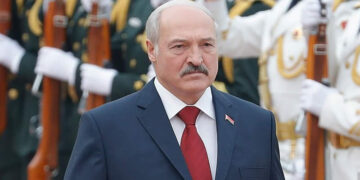 Thailand is introducing a tax on foreign holdings of bonds, the latest in a string of attempts by emerging economies to curb destabilising capital inflows amid fears of a global currency war.The Thai cabinet on Tuesday imposed a 15 per cent withholding tax on capital gains and interest payments for government and state-owned company bonds, a clear signal that it would take tough measures to curb inflows of “hot money”.A surge of money into Thailand has driven the baht to its highest against the dollar since just before the Asian crisis of 1997-1998.Emerging markets have been caught in the middle of a seemingly intractable dispute over exchange rates and capital flows between the US and China, on evidence again at the International Monetary Fund meetings in Washington over the weekend.Things fall apart: Currency clash While the US accuses China of undervaluing the renminbi, China blames loose US monetary policy for driving money into emerging markets that threatens to destabilise their economies.Jean-Claude Trichet, president of the European Central Bank, added his voice to warnings about the dangers of a global currency war, saying in New York the international community “must say ‘no’ to protectionism and ‘no’ to beggar-thy-neighbour policies”.The Thai announcement signals a lack of confidence that the issue will be resolved at next month’s meeting of G20 heads of government in Seoul, South Korea.
Thailand is introducing a tax on foreign holdings of bonds, the latest in a string of attempts by emerging economies to curb destabilising capital inflows amid fears of a global currency war.The Thai cabinet on Tuesday imposed a 15 per cent withholding tax on capital gains and interest payments for government and state-owned company bonds, a clear signal that it would take tough measures to curb inflows of “hot money”.A surge of money into Thailand has driven the baht to its highest against the dollar since just before the Asian crisis of 1997-1998.Emerging markets have been caught in the middle of a seemingly intractable dispute over exchange rates and capital flows between the US and China, on evidence again at the International Monetary Fund meetings in Washington over the weekend.Things fall apart: Currency clash While the US accuses China of undervaluing the renminbi, China blames loose US monetary policy for driving money into emerging markets that threatens to destabilise their economies.Jean-Claude Trichet, president of the European Central Bank, added his voice to warnings about the dangers of a global currency war, saying in New York the international community “must say ‘no’ to protectionism and ‘no’ to beggar-thy-neighbour policies”.The Thai announcement signals a lack of confidence that the issue will be resolved at next month’s meeting of G20 heads of government in Seoul, South Korea.
Undervalued currencies? China’s not alone
“Most countries in Asia are moving in the direction of capital controls,” said Dariusz Kowalczyk, a strategist at Crédit Agricole. “But I doubt they will be successful. There is so much liquidity, and there will be even more from quantitative easing in Japan and the US, that the tide will be just too high.”Korn Chatikavanij, Thai finance minister, played down the move, saying Thailand was only rescinding a 2005 tax waiver for foreign investors. “This is not capital controls,” Mr Korn told the Financial Times. “We are equalising the tax treatment between foreign and local investors”.But he conceded that the recent inflows were “problematic”. Mr Korn said foreign holdings of Thai bonds had increased “unnaturally” over the past month, shooting to 10 per cent of the total, and eclipsing a previous record of 4 per cent.The move follows a doubling of taxes on foreign bond purchases in Brazil and sustained — though denied — currency market intervention by the South Korean authorities to hold down the won. The Thai authorities have already intervened in recent months to prevent the baht rising, but to little effect.Capital controls have been recently endorsed by the IMF as a legitimate short-term weapon for reducing the impact of volatile capital flows, but many economists remain sceptical about their effectiveness. After an initial dip, the baht was the only Asian currency to appreciate against the dollar on Tuesday
There has been recent speculation in India and the Philippines that some form of controls might be introduced, but senior officials have played down the reports.Pranab Mukherjee, the Indian finance minister, said on Monday that there was no need for intervention to take the steam out of the rupee, or for capital controls on fund flows – Cnn










